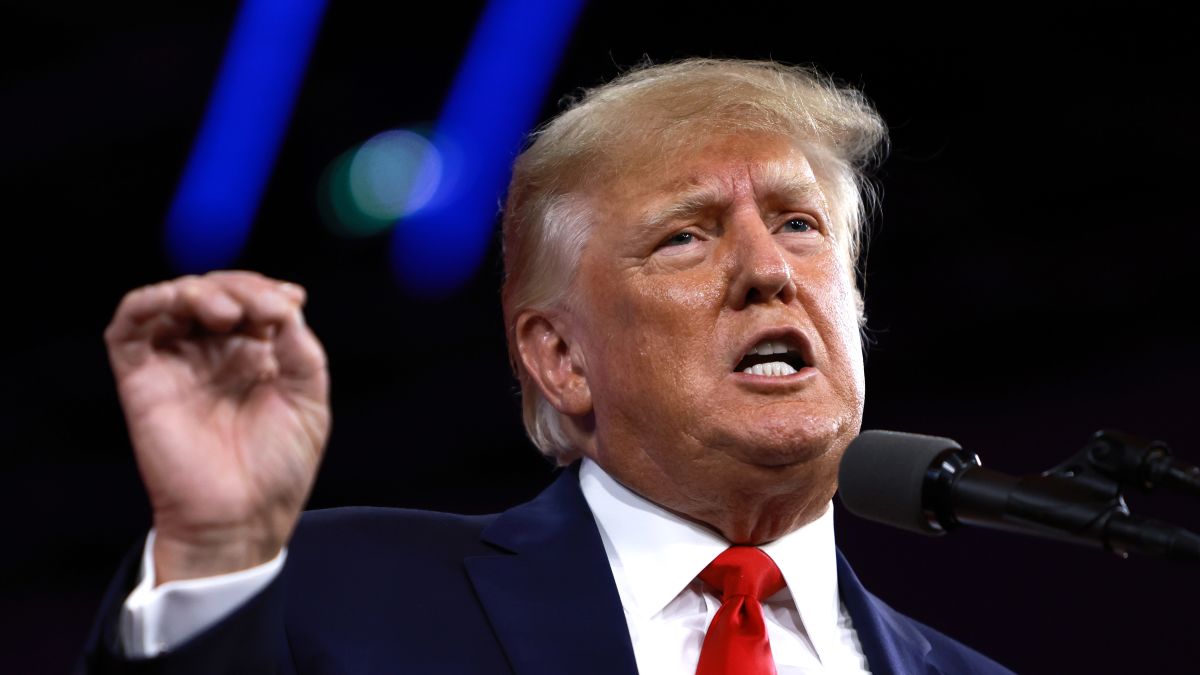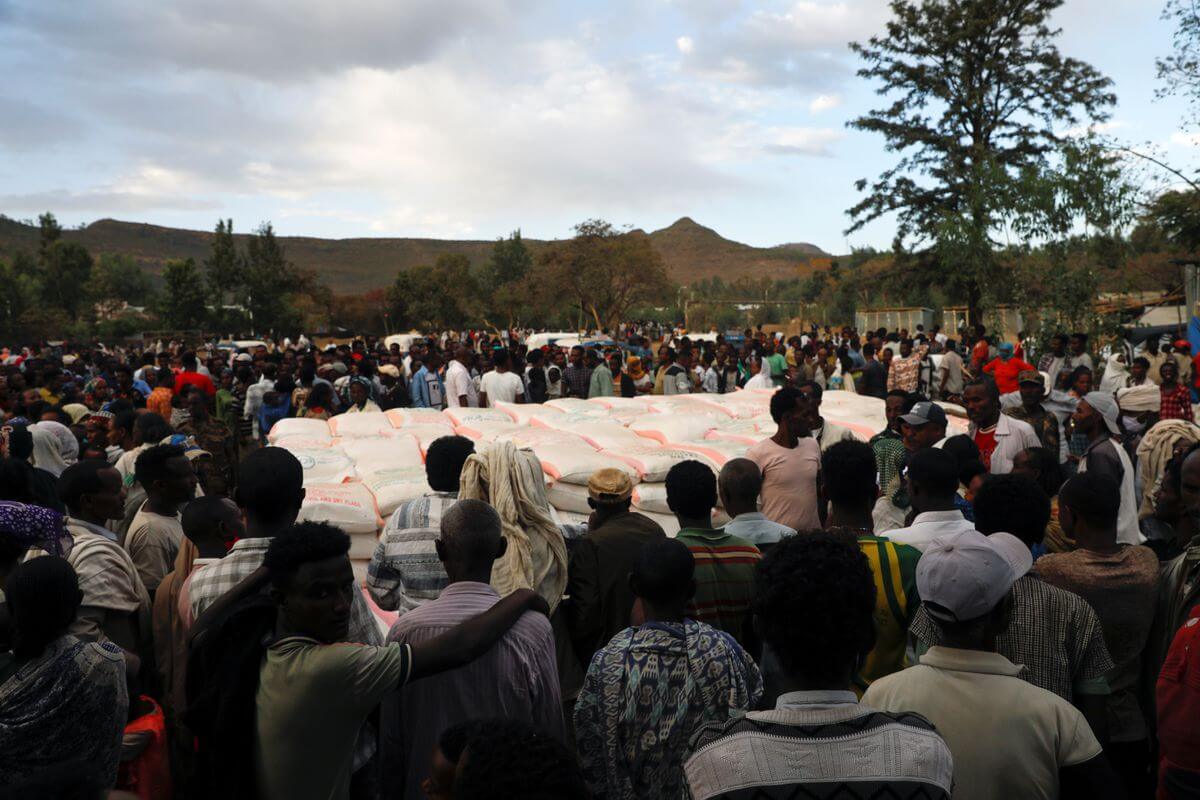South Asia
On Sunday, the Taliban declared a ban on the cultivation of opium poppy to crack down on drug production in the war-torn country. The international community has previously said that one of the many preconditions for recognizing the Taliban as the legitimate rulers of Afghanistan is for the group to tackle illicit drug production and trafficking. [Al Jazeera]
During a meeting with Indian Prime Minister Narendra Modi, Nepalese PM Sher Bahadur Deuba raised the “boundary issue” and called for an expedited resolution through a“bilateral mechanism;” he called on both sides to avoid “politicizing” the dispute. Since May 2020, relations between India and Nepal have been strained. However, since Deuba took over as the country’s leader last July, he has been working to revive the partnership. Although much of the focus was given to the two countries’ border dispute, Modi and Deuba also signed several memorandums of understanding on disaster relief management, transport and connectivity, and cooperation in drug remand and illicit trafficking. [Indian Express]
Central Asia and the Caucasus
Human Rights Watch has accused Kyrgyzstan’s government of harassing independent media “with a slew of criminal investigations into their work in recent months.” Authorities have been targeting the media for being critical of President Sadyr Japarov’s government by labelling outlets as extremist organisations and launching frequent raids on their offices. [Human Rights Watch]
A massive explosion at a nightclub in Baku, Azerbaijan on Sunday killed one person and injured 31. The Interior Ministry stated that the explosion was believed to be caused by a gas leak; however, it is not ruling out other causes and is continuing the investigation. [TRT World]
East and Southeast Asia
CanSino Biologics Inc. announced on Sunday that the National Medical Products Administration of China has granted approval for the clinical trial application of its COVID-19 mRNA vaccine. Pre-clinical trial results showed that the vaccine is capable of inducing high neutralizing antibody levels against multiple SARS-CoV-2 variants, including the highly transmissible Omicron variant. [PR Newswire]
South Korea’s presidential transition committee on Sunday announced Han Duck-soo as the Prime Minister (PM) of President-elect Yoon Suk-yeol’s cabinet. The appointee has previously served as a PM during the Roh Moo-hyun administration from April 2007 to February 2008 and his expertise lies in economy, trade, and public affairs. [KBS World]
On Monday, Hong Kong Chief Executive Carrie Lam announced that she will not seek a second term in office, with her successor due to be elected in May. Her deputy, John Lee, has been touted as her replacement. Lam has overseen a tumultuous period in Hong Kong politics, with the massive uprisings in 2019, the new national security law in 2020, and the new electoral laws in 2021. She has been criticised for her pro-Beijing stance and her complicity in the erosion of the city state’s autonomy and democracy. [Associated Press]
Kim Yo-jong, the younger sister of North Korean Supreme Leader Kim Jong-un, warned Seoul that South Korean Minister of National Defence Suh Wook’s “reckless remarks” about Pyongyang’s missile capabilities have “further worsened military tensions on the Korean Peninsula” and that Seoul “may face a serious threat.” “We cannot but take his confrontation hysteria seriously and reconsider many things,” she warned. Suh provoked the response after he said at a military event on Friday that Seoul’s defence forces are “capable and ready to accurately strike the origin of North Korea’s missile firing and command and support facilities in a clear case of missile firing.” [The Korea Herald]
Europe
British Business Secretary Kwasi Kwarteng announced that the United Kingdom intends to set up seven nuclear power stations across the country by 2050. This decision was made in a bid to bolster domestic energy production and curb reliance on Russian energy. [Reuters]
On late Saturday, Lithuania became the first European Union (EU) country to completely cease Russian gas imports, declaring it is breaking “energy ties with the aggressor.” President Gitanas Nauseda confirmed this in a statement, adding that “If we can do it, the rest of Europe can do it too.” Nauseda noted that the Klaipeda liquified natural gas (LNG) terminal will serve the country’s primary energy needs. Additionally, Vilnius continued to provide gas transit to Russia’s Kaliningrad exclave. [Reuters]
During a virtual summit with China on Friday, European Union leaders warned Beijing against interfering in sanctions imposed on Russia by the West to retaliate against Ukraine’s invasion. European Council President Charles Michel said the bloc will remain vigilant to detect any attempts to send financial or military aid to Russia; he also urged China to help end the war. [Euractiv]
Latin America and the Caribbean
Former Costa Rican Finance Minister Rodrigo Chaves defeated former President José María Figueres with 53% of the votes in the country’s run-off election. Voter turnout, meanwhile, was recorded at just 58%. Chaves is currently under investigation for illegal campaign financing and was forced to leave his job at the World Bank following allegations of sexual harassment. He ran on an anti-establishment platform and has vowed to disturb the deeply-entrenched political elite in the country that has been in power for over four decades. [Reuters]
Heavy rains and landslides in the southeastern Brazilian state of Rio de Janeiro state have killed at least 14 people. Deadly floods have become a regular occurrence in Brazil, with dozens killed in similar incidents in the Bahia state in December and the states of Minas Gerais and São Paulo in separate events in January. Similarly, floods and landslides in the state of São Paulo in early February killed 24 and displaced over 1,500. [CNN]

Middle East and North Africa (MENA)
Former Crown Prince of Jordan Hamzah bin Hussein, who conducted an unsuccessful coup against King Abdullah II last April, renounced his title of prince on Sunday in protest of how the country is being governed. Hamzah wrote on Twitter that his convictions are not in line with the “current approaches, policies and methods of our institutions.” [Associated Press]
Twenty trucks carrying food aid entered Ethiopia’s conflict-ridden Tigray region for the first time since December 15, the World Food Programme (WFP) said on Friday. WFP said that the entry of aid was critical in addressing the need of over 90% of Tigrayans, who are dependent on food aid for survival. [Reuters]
North America
On Saturday, as he criticised Washington’s haphazard withdrawal from Afghanistan, former United States (US) President Donald Trump praised his own record in the country, saying “not one person was killed for 18 months”. During a rally for the Republican party in Michigan, Trump appeared to suggest that the US should intervene in Afghanistan again, saying, “Maybe we ought to go in and take it back,” referring to Washington’s leftover military equipment. [Newsweek]
The United States (US) Department of Defence on Saturday approved the repatriation of Sufiyan Barhoumi, a top al-Qaeda member detained in Guantánamo Bay for the last 20 years. Washington confirmed that Barhoumi will be sent back to Algeria after arresting him in 2002 for allegedly planning a bomb attack on the US. In a statement, the US also confirmed that it is looking to shut down its facility in Guantánamo Bay, where 37 detainees remain, 18 of whom are eligible for transfer. [US Department of State]
Oceania
On Monday, Australian Prime Minister Scott Morrison said Russia must be held accountable for war crimes after reports of civilian massacres by Russian forces. Morrison said he was “appalled” by the “targeting of innocent civilians and civilian infrastructure” in Bucha and other cities. [9 News]
On Saturday, New Zealand joined 30 other members of the International Energy Association (IEA) for a special meeting in which they agreed to release more oil to compensate for the loss of Russian oil exports amid the Russian invasion of Ukraine. New Zealand’s Energy and Resources Minister, Megan Woods, said the country has already released 369,000 barrels of oil as part of IEA’s commitment. Woods added that the decision to release more oil would be taken next week. [RNZ]
Sub-Saharan Africa
On Friday, the Malian army said it killed 203 militants and arrested 51 more in the central Moura region of the Sahel state. Following criticism by both the United Nations and the United States, the junta has said its counterterrorism operation was underpinned by a commitment to human rights and international law, and urged “restraint against defamatory speculation.” The junta heads the country’s transitional government after coups in August 2020 and May 2021; it has refused to hold elections. [The Guardian]
Thousands of refugees from the Democratic Republic of Congo who fled to Uganda following clashes between the M23 rebels and the DRC's armed forces last month have refused to return home. The Congolese army alleged that Rwanda is backing rebel groups in eastern DRC, a claim that Rwanda has denied. In fact, even UN investigators have previously made accusations that Rwanda and Uganda have been supporting the M23. Late last month, the rebels shot down a helicopter belonging to United Nations peacekeeping mission MONUSCO, killing eight peacekeepers in the process. [Africanews]

